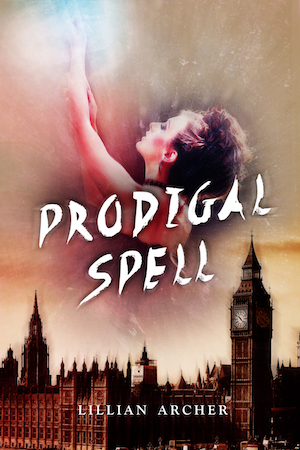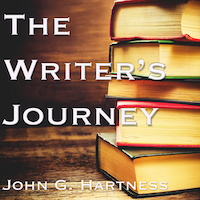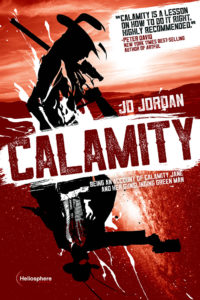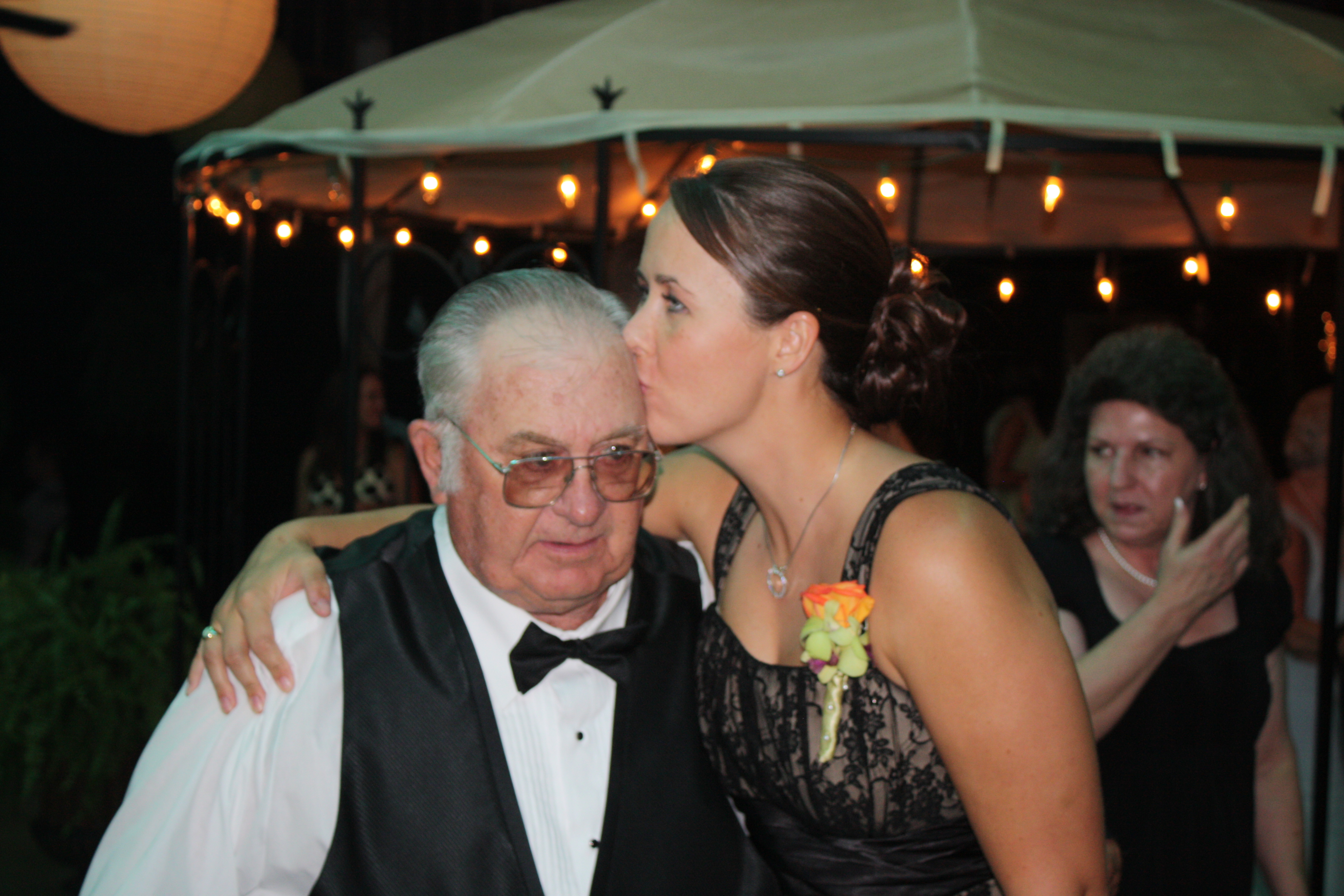
by john | Apr 21, 2017 | Evolution, Writing
 Why I write what I write by Lillian Archer
Why I write what I write by Lillian Archer
A hearty thank you to John Hartness for hosting me on his blog. Now go buy one of his books:)
I am Lillian Archer, purveyor of fine historical fantasy books. I started my publishing career with an agent, went through the process of trying to sell a book to traditional press and small press, and ultimately decided to self-publish instead of pursuing the traditional route.
John requested this series of posts to discuss why an author writes what they write. That is a very personal question, and one I am happy to explore today.
I write because my day job is one where humanity and empathy are discouraged, where cost and dollar amounts are the only currency of worth, and where being a woman is a shiny, glittering glass ceiling few shatter.
I write to express my empathy, my compassion, my love of dreamers, and empowerment of marginalized persons. I write to remind myself that my day job is not sucking the humanity from my marrow bones. I write to entertain, and hope my words bring a wee bit of joy to someone else’s day.
My first novel, Prodigal Spell, is set in Colonial Britain and the Caribbean.
I like using historical backdrops for my writing, taking the accepted social norms and mores of the time period and exploring those strengths and weaknesses. My main character is a female witch trapped by the expectations of society and how she blows those social constructs out of the water. Literally. (I love writing scenes where things blow up, because that is always an opportunity for delightfully awful things to happen to characters. Don’t read my work if you don’t like explosions.) My current work in progress’ main character is a female spy during the Cold War.
My work is not an “-ism”, nor is it a moral commentary on historical events. I write to provide a different perspective, and hope that is an enjoyable experience for my readers. And, I write to express historically accurate pyrotechnic opportunities of the time period.
If you are interested in Prodigal Spell, or my work, here are the requisite links. I am also open to talking about traditional route vs self-publishing. Email, follow on twitter, or friend me on Facebook. I also share a group blog called The Million Words, and we chat about all sorts of writing topics over there. Come find me out in Internet Land!
Website and blog: https://www.lillianarcher.com
Twitter: @lilliansbooks
Facebook: https://www.facebook.com/profile.php?id=100006923387669
Email- lily@lillianarcher.com
Prodigal Spell is available in ebook, print and audiobook on Amazon.
https://www.amazon.com/Prodigal-Spell-Nevis-Witches-Book-ebook/dp/B00KQ9LP7M/ref=sr_1_1?ie=UTF8&qid=1491140510&sr=8-1&keywords=prodigal+spell
Also available in ebook on the iTunes store if you search for Prodigal Spell. If you love kobo, here is your link:
https://www.kobo.com/us/en/ebook/prodigal-spell

by john | Apr 19, 2017 | Business of publishing, Podcast, The Writer's Journey
 One last Mysticon episode! This time I talked with my friend Margaret McGraw about her website, her evolution as a writer, her journey to success, and upcoming projects like Lawless Lands, coming this summer from Falstaff Books. You can subscribe to the podcast on iTunes or any of those other podcasty-type places, or you can click here to listen to it in your browser.
One last Mysticon episode! This time I talked with my friend Margaret McGraw about her website, her evolution as a writer, her journey to success, and upcoming projects like Lawless Lands, coming this summer from Falstaff Books. You can subscribe to the podcast on iTunes or any of those other podcasty-type places, or you can click here to listen to it in your browser.

by john | Apr 14, 2017 | Evolution, Promos/Giveaways, Writing
My buddy and Falstaff Books author Darin Kennedy hooked me up with JD, and since we will both be at JordanCon next weekend, I thought this might be a very good time to feature him on this blog post. If you get a chance and you’re anywhere near Atlanta, come visit us!
 Calamity Jane and a goddamn spaceman?
Calamity Jane and a goddamn spaceman?
I was sitting on the steps of the Metro Atlanta Chamber of Commerce after a party, waiting for the valet, when the ideas for two historical scifi books popped into my head. One of those became the novella Seeing the Elephant that ultimately grew into the novel Calamity. I remember bouncing ideas off my friends and it took a while for the story—as you read it—to take shape. But it was always about growth and coming of age in the West, in the aftermath of the Civil War, on the frontier of American civilization. At the time, I was deep into both HBO’s Deadwood and Fox’s Firefly and their influences are unmistakable in Calamity. If you don’t know what I mean, go watch the first few episodes of Deadwood, especially “Here Was a Man” and “The Trial of Jack McCall”—Robin Weigert’s was the first Calamity Jane I ever really knew—and the Firefly episodes “Out of Gas” and “Objects in Space”—hints of the scifi-west and the Green Man can be found there. I was so intrigued by Calamity Jane as a historical figure—an iconic woman in a man’s world—and as a transformative character. I fell in love with the potential of her right away.
I’ve had a number of readers comment about how well-written they think Jane is as a teenager and as a woman—especially when they know she was written by a man. I even had an agent express surprise on meeting me because she assumed I’d be a woman based on what she’d read of chapter one. Such amazing compliments! I like to tell people I was neither a teenage girl nor very successful with them when I was young, so I reckon I’m just as surprised as that agent was. But I think I was able to write her as well as I was not because I was tapping into anything uniquely female (my wife disagrees on this point) but because I was able to tap into Jane’s frustration, her feelings of abandonment and ostracization, her loneliness, and—of course—her anger. I was in a lonely and angry place when I wrote her—though I didn’t appreciate it at the time—and writing her always felt more like commiseration than pretending. I think to some degree, we’ve all been Martha wanting to become Jane. I sure was.
Of course, I wasn’t into westerns so the idea to combine western and scifi ended was as much the challenge as the story and the heroine. A fancy literary explanation might go: A lot of the appeal for this kind of mash-up comes from the fact that these are both fundamentally American and fundamentally modern genres. Westerns are the product of America colonization of the continent—and all the good and the bad that goes with ideas of frontier and Manifest Destiny and conquest in that history. Scifi, on the other hand, turns many of these themes around, looking forward while always metaphorically looking back. Where settlers drove out the natives in the 1800s, so will we—the beneficiaries of that conquest—face threats of extermination in the future. The settlers have become the first peoples in jeopardy and the idea of the Green Men and the Gray Men as Others who can menace the West in this way is an interesting one. And one that preys on our fears of annihilation.
But the more basic answer is that Jane and the Green Man insisted on these genres. A prospective agent once asked me to remove the Green Man from the story and I just couldn’t see how it would work. It suddenly wasn’t anything I wanted to read. The Green Man is Jane’s magic feather. He’s her Man with No Name. His alienness is so integral to her view of the world—even when he’s not around or when he’s the only scifi thing in the story—that the western part of the novel would’ve been diminished without the science fiction.

by john | Apr 12, 2017 | Amazing Grace, Writing
The serialized novel Amazing Grace that I’m publishing here grew out of a walk through the cemetery in my hometown. I grew up in a small town called Sharon, SC. Actually, I grew up outside of Sharon, in a rural area called Bullock Creek, but Sharon was the nearest post office and elementary school, so that’s close enough for government work. In Sharon there’s an old Presbyterian Church, dating back to the late 1700s, and the entire front row of the cemetery, with just a few notable exceptions, has my last name on the stones. Most of the folks buried in that front row that don’t share a name with me, still share a lineage.
My people have been there for a long time. My mother is buried there, my brother-in-law is buried there, my infant nephew, my uncle, my cousin Marion (remember the Bubba story Rest High on that Mountain? That’s where the name came from.) Marion’s parents, my paternal grandparents, my Uncle Erskine, who survived the Battle of the Bulge and received the Silver Star for bravery. There’s also a three-sided monument in the cemetery tracing my people back to England and a bunch of the ancestors that are not buried there.
I’m invested in that little town, to say the least. I was walking through the cemetery one afternoon, visiting Wayne (my brother-in-law), Uncle Ed, and Mama, when I got a sentence stuck in my head. “I walk through the cemetery, with the ghosts of my people swirling around my feet.”
I wrote poetry for years, and I recognize a good line when I see it. That’s a good line. But it felt like more than a poem to me. My sister Bonnie has been after me for years to write a book about our family, to share some of the stories that we’ve created over the years with the world. That may never happen, at least not when I have to look at these people over Thanksgiving dinner, but this felt like it could be something kinda like that.
So I talked about it with my mom. She didn’t answer, because unlike Lila Grace Carter, dead people don’t talk back to me. Like Lila Grace, and honestly like every Southerner I know, I do talk to dead people. I talk to dead people all the damn time. I ask my mom for advice. I tell my brother-in-law that he’s a dick for dying young. I tell my uncle he’s an asshole for killing himself. I talk to dead friends, and ask them to look out for one another. I ask Aunt Julia and Uncle Erskine to keep an eye on folks for me. It’s a thing. I do it, and I bet if you scratch beneath the surface of most Southerners, especially folks who grew up in small towns or in the country, you’ll find a one-sided necromancer.
As I sat there on the tombstone in the next row over, facing Mama (sorry, I know it’s a little irreverent, but I’ve always been of the impression that if people didn’t want us to sit on tombstones, they wouldn’t make them ass height), I decided that I would write the story of my family, and the story of my small town. So that’s what Amazing Grace has become. Lila Grace Carter is a big chunk of my mother. She’s a strong woman, unafraid to jump right in and do what she thinks needs doing. She doesn’t always look before she leaps, and that sometimes causes trouble for her, and she’s got a wicked tongue.
My mother was all of those things. She did not, as far as I know, believe in the supernatural outside of the Bible or communicate with dead people. There are other people in the book that are real as well. The Dead Old Ladies’ Detective Agency is even named after my mother and her two best friends, Helen “Tot” Good and Faye Russell (who was born a Comer). Miss Tot died last year, but Miss Faye is still kicking and feisty as hell. The three of them for a long time did in fact make up the Western York County grapevine. Anytime anything happened in Bullock Creek, Hickory Grove, or Sharon, one of the three of them knew about it and passed the word along to the other.
There are two big changes I’ll be making moving forward with the book. One is the name, and the other is location. Not the name of the book, though. I like Amazing Grace, and it lends itself to more “Grace” book titles if I decide this won’t be a stand-alone. I expect if I do write another book in this world that the Dead Old Ladies Detective Agency is going to have a larger role, because they have turned into one of those small ideas that are just fun as hell, and deserve a little more space to breathe and run than they have in this project. But the author’s name is going to change.
I’ve written a ton of books under my real name, but this is a book of a totally different style and flavor, and I’d like a chance to reach a different audience. That audience might be put off by looking at the also-bought recommendations on Amazon and seeing a bunch of horror novels. Or maybe not. But it hurts me not at all to publish this project under a pseudonym, and if I decide I don’t like it, I can always rebrand it as my own later. It’s not going to be any kind of secret, and I’m pretty sure the name I’m using will be JG Wyatt, which is my two initials and my mother’s maiden name. I’m not locked into that yet, but about 75%.
The other thing I’m going to change is fictionalizing the geography. I initially set the book in a fictional version of Lockhart, SC. Which is fine, I know Lockhart fairly well, and can write that part of the country. But the town I’ve been using in my head for the map has been Sharon, with a fair bit of York tossed in for good measure. So I need to just make it a fictional town so that I’m not confusing anyone who is actually from those towns and reads the book. That also means that I need to change the references to John D. Long Lake in the book, and take out the references to the Susan Smith murders that happened there.
This is what happens as you write a book. Things change. Some great ideas pop up and need to be expanded, so you either find room to grow them in that book or put them on the list of other books you want to write when you get time. Some ideas that seem great turn out to be untenable, so they get cut, or manipulated, or just flat out deleted. I’m not one of those writers who saves every word I’ve written and sometimes pulls things out of mothballs later. I don’t have the recall or organizational system for that. So I’ll just go through and rewrite it.
And I can do that, because as yet, no one has paid me any money for this book. I’m giving it away as it evolves, as an experiment. So I can continue to experiment and do whatever the hell I want with it. And I will. I’m having a lot of fun with this book, and I hope y’all are too.
Oh yeah, and the old folks that are the featured images for most of the posts about this book? They’re my parents. Most of these shots are taken at weddings of family members, and the pic of my mom in the teal jacket is one of my favorite pictures of her. The pic of my dad in the tux this week is absolutely my favorite picture I’ve ever taken of him.
I’ll probably pop back in once in a while to tell y’all about other stuff with this book. Right now I’ve published nine chapters, and I’ve written 20, with at least ten more to go. I think this book feels like it’s going to be about 75K, or just a little longer than the last Black Knight book.
Thanks for stopping by. See y’all later.

by john | Apr 7, 2017 | Book Spotlight, Evolution, Writing

I’ve been writing fiction since I was in sixth grade, when I wrote a short Silmarillion fanfic telling how the Valar created the halflings. (And now let us pause to appreciate the colossal nerdiness on display in that sentence.) Since then I’ve written dozens of short stories, but only one novel: Blood Family, published in September 2016. Part of what I had to do in the course of writing that book was to figure out how to write a novel—or, more precisely, how I write a novel.
For my short stories, the ideas seemed to come from everywhere and nowhere: a dream, a snatch of conversation, a phrase in an essay, a newspaper headline. When I sat down to write the novel that became Blood Family, I initially started with a similar approach. I knew I wanted my first novel to say something about family, because I’d tried many times before to write about what it was like growing up in a highly dysfunctional family with Southern Gothic tendencies. Unfortunately, none of those attempts came out right, perhaps because they were all personal essays. For my novel I decided to try using fiction to express what my childhood and adolescence had taught me about family.
I also wanted to debunk the popular notion that “every parent out there is just doing the best they can.” Oh, really? When Josef Fritzl held his daughter Elisabeth captive in a basement in Austria for 24 years, raping her the entire time and impregnating her with seven of his children, he was just doing the best he could? When Brice McMillan tied his 13-year-old son to a tree for 18 hours in the summertime in North Carolina, causing the boy to die of dehydration and heat stroke, he was just doing the best he could too? No. They weren’t. They could have done better. There are countless examples from history and the news—and a few from my own family—demonstrating that not every parent out there is just doing the best they can. I wanted to tell a story from the point of view of an adult who had grown up in a family where the adults did not always have the children’s best interests at heart.
If I’d been writing a short story, the conceptualization phase probably would have stopped there, but this was a novel, and I was on a different mission. Most of my short stories have been situated squarely in the mainstream literary realist tradition, with a few adventurous ones sliding sideways into what literary theorist Tzetvan Todorov would call “the fantastic,” which he positions between “the uncanny” (it looks like it might be supernatural, but it isn’t) and “the marvelous” (it’s definitely supernatural). In fantastic stories, the question of the supernatural is raised without being resolved one way or the other, and I liked that—but not for a good reason. I liked the fantastic because it allowed me to dabble in the shallows of the supernatural without diving in and committing to it. “To commit is to be in danger,” James Baldwin said, and I was afraid of that danger. I was afraid of writing openly supernatural stories that the literary elite might look down upon. So I equivocated, writing stories about eerie occurrences that might or might not have a rational explantion.
My novel constituted a decisive break with that practice because, frankly, I was tired of fucking around. I knew the only way I could sustain my enthusiasm and dedication through an entire novel was to write something I really cared about and enjoyed, and for me, that means stories of the other world: ghosts and demons and myths and legends and gods and monsters and magic; cults, covens, religions; spells that really work; portals that really go somewhere. And when I surveyed that rich vein of story ideas, it seemed to me that ghosts, and the unquiet dead in general, would be very useful in telling a story about a family whose parents have visited their sins upon their descendants. You see this kind of thing a lot in Gothic fiction: houses that are reputed to be haunted, for instance, symbolizing the influence of the past upon the present. In my novel, I decided to see what kind of mileage I could get out of making a haunted house actually be haunted, even as I sought to deploy the resonant themes, the psychologically rich characters, and the carefully crafted sentences of mainstream literary fiction.
In short, Blood Family represents the coupling of a theme you might expect to see in a mainstream literary novel (how unhealthy families mangle their descendants) with a story element from genre fiction (the unquiet dead). The entire novel flows from that dyad. I’ve used a similar dyadic structure to develop the basic idea for my next novel, which I’ve already begun working on. I believe this simple structure is a key that can unlock more novels than I could ever possibly write—but I’m going to do my damndest to get as many of them down as I can before I join the ranks of the unquiet dead myself.
Bio: Brent Winter is a writer and editor in Carrboro, North Carolina. Blood Family is his debut novel. To learn more about Blood Family, including where to buy it, visit Brent’s author site. He’s currently at work on a novel that, although not a sequel to Blood Family, is set in the same universe—one where downtown Atlanta hides a strange little neighborhood called D Street that you can’t find on your own; someone who’s already been there has to take you first.

 Why I write what I write by Lillian Archer
Why I write what I write by Lillian Archer

 Calamity Jane and a goddamn spaceman?
Calamity Jane and a goddamn spaceman?






